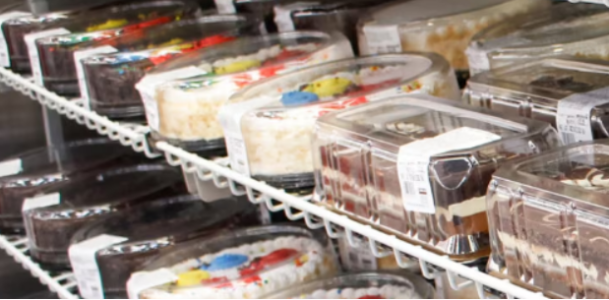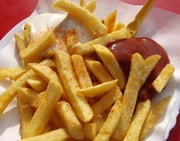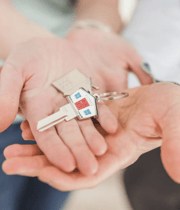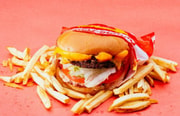The surprising second life of Costco's bakery leftovers
- Replies 0
If you’ve ever eyed the fresh muffins or croissants in Costco’s bakery and wondered what happens to the ones that don’t sell—you're not alone.
The truth is, not every pastry or loaf of bread on display at Costco manages to get picked up and purchased by the time the store closes for the day.
But rather than simply tossing out these unsold bakery items as waste, Costco has an established process in place that helps divert food from landfills and instead directs it to organizations that serve people facing food insecurity.
And this system of food recovery is actually more organized, far-reaching, and consistently implemented across locations than most shoppers might initially expect.
Costco’s leftover baked goods are typically pulled from shelves one to two days before their sell-by date.
But instead of being trashed, many are donated to Feeding America and a network of local food banks across the country.
According to Feeding America, Costco is one of their consistent partners, donating both money and food—including bread, pastries, dairy, and produce.
These donations are sorted and distributed at no cost to individuals facing food insecurity. After collection, many bakery items are kept refrigerated to preserve freshness during transport.
Once they arrive at a food pantry or food bank, volunteers inspect each item for safety and quality. Baked goods are only distributed if they’re still within date and show no signs of spoilage.
Anything questionable is immediately discarded to maintain food safety standards. Although Feeding America handles most US-based Costco donations, international Costco warehouses also participate.
Locations outside the United States donate unsold food to local food rescue organizations in their regions.
This ensures that leftover food benefits communities around the world, not just in the US It’s part of a broader company-wide effort to reduce waste and support charitable giving globally.
Also read: Skip the lines at Costco? A new perk lets you shop early—if you qualify
For Costco, donating surplus bakery goods isn’t just altruistic—it’s also financially strategic. Companies that donate food are eligible for tax deductions under IRS rules, especially when donations go to qualified nonprofits.
So while these efforts help people in need, they also offer a cost-saving benefit to Costco. That financial incentive helps fuel the sustainability of donation programs like this one.
Costco’s actions are a small part of a much larger fight against food waste in America. The USDA estimates that up to 40% of food in the US goes uneaten each year, contributing to environmental and social issues.
More major retailers, including Kroger and Walmart, have begun working with food banks to divert safe, surplus food. These programs aim to reduce both hunger and the environmental toll of unnecessary waste.
Also read: Costco shopper left embarrassed after self-checkout rejects common payment method
You might wonder whether bakery items close to their sell-by date are safe to eat. The answer is yes—as long as they’ve been handled and stored correctly.
Food banks follow strict safety protocols and do not distribute baked goods that are expired, moldy, or damaged. The goal is to deliver fresh, edible food that recipients would feel confident serving their families.
If you want to support these efforts yourself, there are several ways to get involved. Volunteering at your local food pantry or donating unused food from your own kitchen can have a real impact.
You can also choose to shop at businesses that actively participate in food donation programs. Every small action helps reduce waste and increase food access in your community.
Read next: A new bakery favorite is drawing crowds at Costco—Don’t miss out!

Have you ever received or helped distribute donated baked goods through a local food pantry? How do you fight food waste in your own home or neighborhood? Share your stories or tips in the comments below—we’d love to hear from you and learn how others are making a difference.
The truth is, not every pastry or loaf of bread on display at Costco manages to get picked up and purchased by the time the store closes for the day.
But rather than simply tossing out these unsold bakery items as waste, Costco has an established process in place that helps divert food from landfills and instead directs it to organizations that serve people facing food insecurity.
And this system of food recovery is actually more organized, far-reaching, and consistently implemented across locations than most shoppers might initially expect.
Costco’s leftover baked goods are typically pulled from shelves one to two days before their sell-by date.
But instead of being trashed, many are donated to Feeding America and a network of local food banks across the country.
According to Feeding America, Costco is one of their consistent partners, donating both money and food—including bread, pastries, dairy, and produce.
These donations are sorted and distributed at no cost to individuals facing food insecurity. After collection, many bakery items are kept refrigerated to preserve freshness during transport.
Once they arrive at a food pantry or food bank, volunteers inspect each item for safety and quality. Baked goods are only distributed if they’re still within date and show no signs of spoilage.
Anything questionable is immediately discarded to maintain food safety standards. Although Feeding America handles most US-based Costco donations, international Costco warehouses also participate.
Locations outside the United States donate unsold food to local food rescue organizations in their regions.
This ensures that leftover food benefits communities around the world, not just in the US It’s part of a broader company-wide effort to reduce waste and support charitable giving globally.
Also read: Skip the lines at Costco? A new perk lets you shop early—if you qualify
For Costco, donating surplus bakery goods isn’t just altruistic—it’s also financially strategic. Companies that donate food are eligible for tax deductions under IRS rules, especially when donations go to qualified nonprofits.
So while these efforts help people in need, they also offer a cost-saving benefit to Costco. That financial incentive helps fuel the sustainability of donation programs like this one.
Costco’s actions are a small part of a much larger fight against food waste in America. The USDA estimates that up to 40% of food in the US goes uneaten each year, contributing to environmental and social issues.
More major retailers, including Kroger and Walmart, have begun working with food banks to divert safe, surplus food. These programs aim to reduce both hunger and the environmental toll of unnecessary waste.
Also read: Costco shopper left embarrassed after self-checkout rejects common payment method
You might wonder whether bakery items close to their sell-by date are safe to eat. The answer is yes—as long as they’ve been handled and stored correctly.
Food banks follow strict safety protocols and do not distribute baked goods that are expired, moldy, or damaged. The goal is to deliver fresh, edible food that recipients would feel confident serving their families.
If you want to support these efforts yourself, there are several ways to get involved. Volunteering at your local food pantry or donating unused food from your own kitchen can have a real impact.
You can also choose to shop at businesses that actively participate in food donation programs. Every small action helps reduce waste and increase food access in your community.
Read next: A new bakery favorite is drawing crowds at Costco—Don’t miss out!
Key Takeaways
- Costco donates leftover baked goods within one to two days of their sell-by date.
- Most US donations are handled by Feeding America, which works with food pantries nationwide.
- All donated bakery items are inspected for freshness and safety before distribution.
- Costco benefits from tax deductions for food donations, making it financially viable.







